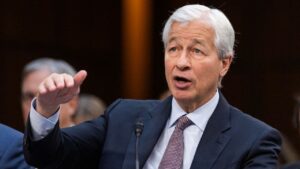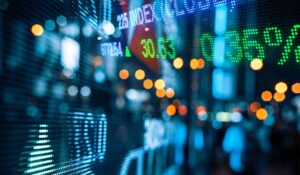A look at the day ahead in U.S. and global markets from Mike Dolan
A confusing mix of red hot stock markets, chilly U.S. economic updates and hawkish Federal Reserve noises make for a foggy end to the week as U.S. producer inflation numbers hove into view.
Major stock indexes at least seem in little doubt about the direction of travel.
Global stocks hit 2-year highs as the soared again to within a hair’s breadth of the record set at the height of Japan’s property bubble in 1990 and Hong Kong’s beaten down rallied more than 2% ahead of China’s post-New Year reopening next week.
And despite the economy’s stumble into recession late last year, the Bank of Japan is on track to end negative interest rates in coming months, according to Reuters sources, and only wages growth needs assessing before it acts.
The yen slipped back lower regardless, while the latest weekly data showed foreign investors can’t get enough of Japan – increasing purchases of Japanese stocks by a net 817.43 billion yen ($5.44 billion) in the biggest inflow since Jan. 12.
Back on Wall St, the hot/cold debate on the U.S. economic performance in 2024 on Thursday leaned heavily to the cooler side of things – not least as frigid weather during January depressed retail sales and industrial production.
Whether the cold snap masks the true strength of the U.S. economy is now an open question as jobless claims fell again and regional Fed surveys showed buoyant business sentiment nonetheless.
With Friday’s producer price report now top of the radar, bond markets are wary of a sticky surprise akin to the consumer price report earlier this week.
A combination of surging stocks, which saw the climb back within 0.5% of record peaks again, and inflation worries has Treasury yields nudging higher again into today’s open.
And Fed officials are sounding wary despite the seemingly soft January economic readouts.
Atlanta Fed boss Raphael Bostic, who is pencilling in only two rate cuts this year, said the central bank was not ready yet to start easing.
“Right now, a strong labor market and macroeconomy offer the chance to execute these policy decisions without oppressive urgency,” he said, adding the economy may even have “pent-up exuberance” that could drive up demand again.
And there was no shortage of pent-up exuberance in some of the high octane parts of the tech sector that are increasingly enmeshed.
Shares of smaller AI firms rallied again on Thursday after the world’s most dominant artificial intelligence chipmaker Nvidia (NASDAQ:) disclosed stakes in them, offering clues on its growth strategy.
The rally showed Nvidia’s growing influence in the AI world as its market value grows at a scorching pace, making it the third most-valuable U.S. company. Its largest investment of $147.3 million was in Arm Holdings (NASDAQ:), the chip designer that Nvidia failed to buy after an $80 billion deal hit the antitrust hurdle two years ago.
Elsewhere, the interest rate picture was equally hard to read.
European Central Bank officials sounded more dovish.
ECB member and Bank of France head Francois Villeroy de Galhau said on Friday there are several compelling reasons why the ECB should not hold off for too long on rate cuts.
“Acting gradually and pragmatically may be preferable to deciding too late and then having to over-adjust,” he said.
And in what’s been a slightly dizzying week for British rates markets – moving between news of a UK recession and soothing inflation updates to hawkish Bank of England soundings and Friday’s blowout retail sales report – the looming election also came on to the radar.
Britain’s Labour Party dealt a crushing blow to Prime Minister Rishi Sunak’s Conservatives on Friday, winning contests for two new lawmakers in votes that indicated the opposition party was on track to win a national election later this year.
Sterling was steady, while UK stocks and gilt yields were higher.
Into Friday’s open then, U.S. stock futures continue to push higher and see the market eyeing new historic peaks at the open. The Vix volatility gauge was subdued below 14.
Key diary items that may provide direction to U.S. markets later on Friday:
* US Jan producer price inflation, housing starts/permits, University of Michigan Feb household sentiment survey.
* Richmond Federal Reserve President Thomas Barkin, San Francisco Fed chief Mary Daly and Fed Vice Chair for Supervision Michael Barr all speak. Bank of England Chief Economist Huw Pill speaks
* Munich Security Conference including NATO Secretary General Jens Stoltenberg, European Commission President Ursula von der Leyen, Chinese Foreign Minister Wang Yi, Ukraine President Volodymyr Zelensky
* U.S. corp earnings: Coinbase (NASDAQ:), Liberty Broadband (NASDAQ:), PPL (NYSE:), Vulcan Materials (NYSE:), Balchem (NASDAQ:), Trade Desk (NASDAQ:)
(By Mike Dolan, editing by Hugh Lawson; mike.dolan@thomsonreuters.com)
Read the full article here












